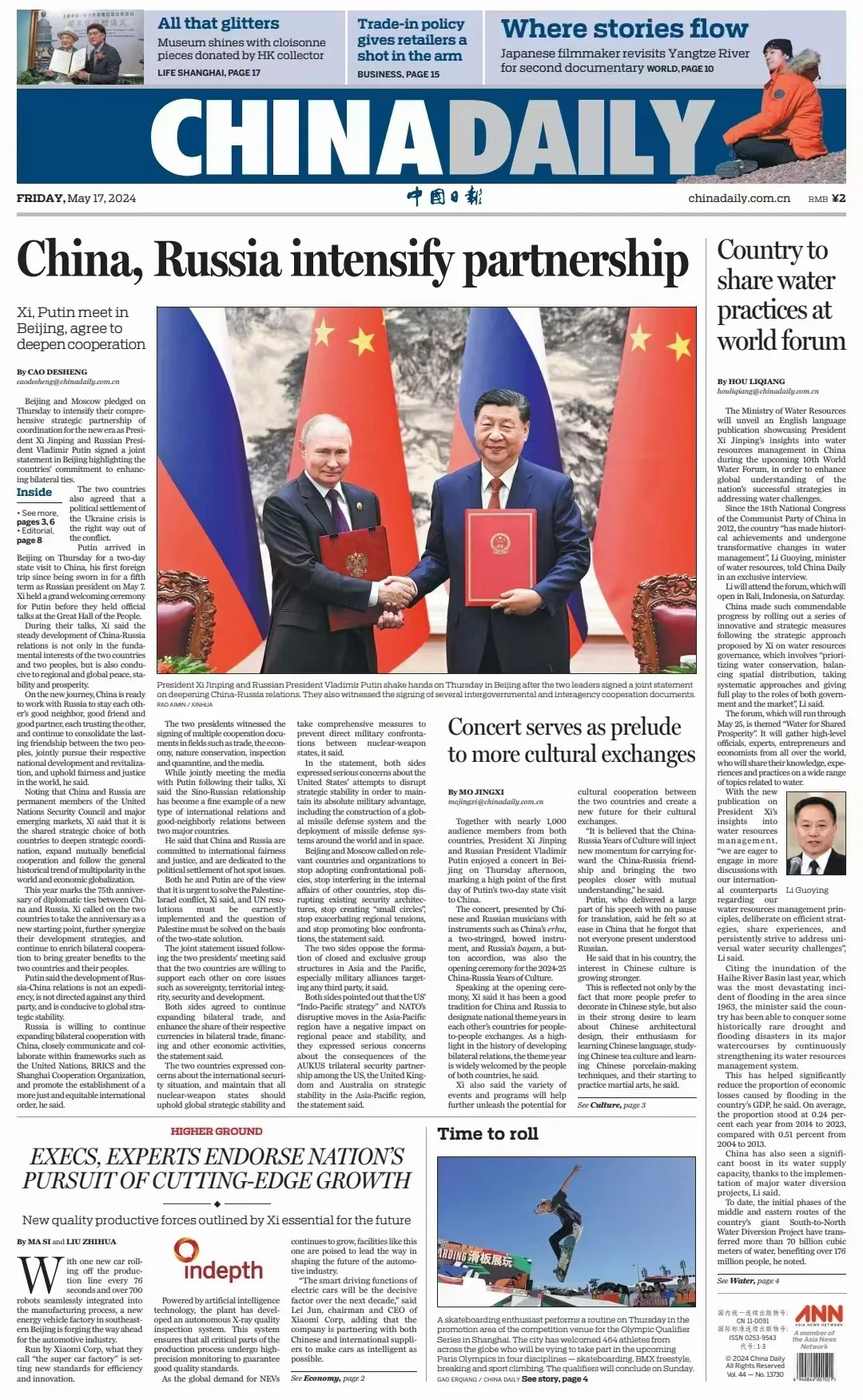时间:2024-05-17来源:

The Ministry of Water Resources will unveil an English language publication showcasing President Xi Jinping's insights into water resources management in China during the upcoming 10th World Water Forum, in order to enhance global understanding of the nation's successful strategies in addressing water challenges.
Since the 18th National Congress of the Communist Party of China in 2012, the country "has made historical achievements and undergone transformative changes in water management", Li Guoying, minister of water resources, told China Daily in an exclusive interview.
Li will attend the forum, which will open in Bali, Indonesia, on Saturday.
China made such commendable progress by rolling out a series of innovative and strategic measures following the strategic approach proposed by Xi on water resources governance, which involves "prioritizing water conservation, balancing spatial distribution, taking systematic approaches and giving full play to the roles of both government and the market", Li said.
The forum, which will run through May 25, is themed "Water for Shared Prosperity". It will gather high-level officials, experts, entrepreneurs and economists from all over the world, who will share their knowledge, experiences and practices on a wide range of topics related to water.
With the new publication on President Xi's insights into water resources management, "we are eager to engage in more discussions with our international counterparts regarding our water resources management principles, deliberate on efficient strategies, share experiences, and persistently strive to address universal water security challenges", Li said.
Citing the inundation of the Haihe River Basin last year, which was the most devastating incident of flooding in the area since 1963, the minister said the country has been able to conquer some historically rare drought and flooding disasters in its major watercourses by continuously strengthening its water resources management system.
This has helped significantly reduce the proportion of economic losses caused by flooding in the country's GDP, he said. On average, the proportion stood at 0.24 percent each year from 2014 to 2023, compared with 0.51 percent from 2004 to 2013.
China has also seen a significant boost in its water supply capacity, thanks to the implementation of major water diversion projects, Li said.
To date, the initial phases of the middle and eastern routes of the country's giant South-to-North Water Diversion Project have transferred more than 70 billion cubic meters of water, benefiting over 176 million people, he noted.
With 24 million hectares of irrigated farmland built or upgraded in the past decade, the country's total irrigated area has reached over 70 million hectares, which has provided robust support for consecutive bumper harvests, he said.
Through consistent efforts in improving its institutional system for saving water, China has seen remarkable progress in its water consumption efficiency, according to the minister.
Despite China's GDP almost doubling in the past decade, the annual total water consumption in the country has stayed well below 610 billion cubic meters, with consumption per unit of GDP and industrial added value dropping 41.7 and 55.1 percent, respectively, he said.
China's rich experience has also brought benefits to many other countries and regions involved in the Belt and Road Initiative, Li said.
Since the initiative was proposed by Xi in 2013, China has carried out over 100 water resources management projects in more than 40 countries and regions, with the total investment surpassing 52 billion yuan ($7.2 billion), he said.
For example, the Lancang-Mekong Sweet Spring Project has helped around 7,000 people in Cambodia, Laos and Myanmar to have access to safe drinking water, he said.
According to Li, Chinese experts on water resources management have been proactively sharing the country's flood control concepts, technologies and experiences with their foreign counterparts by participating in international scientific research cooperation and water-related exchange activities.
To date, more than 60 Chinese experts have served in leadership positions in over 20 international water-related organizations, playing a significant role in promoting the development of these organizations, he said.
